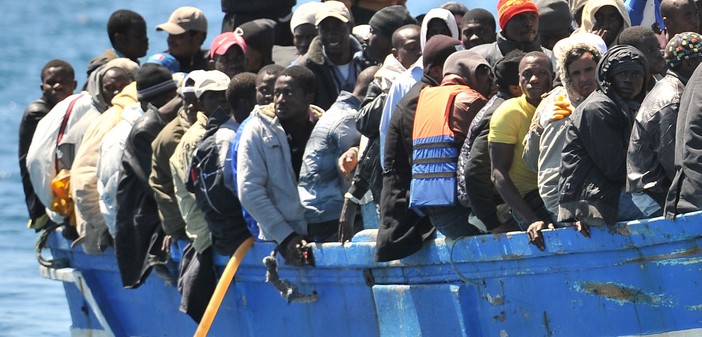
Since the dawn of time, the poor have emigrated to rich countries. In Europe, in recent decades and years, there has been immigration from east to west and from south to north.
Returning to current events, for several years now, due to humanitarian and economic reasons, there have been massive and clandestine waves of immigration coming from around the Mediterranean, mainly arriving in southern Italy, Greece, and more marginally in southern Spain.
In the face of this tsunami, the inhumane conditions of these journeys and the number of deaths they have caused are avoided topics, while the countries of the European Union are looking for a response. This clandestine immigration, due to the scale it has reached, the selfish and xenophobic reactions, and the cynical and populist exploitation by some parties, risks destabilizing the countries of the European Union.
The fact is that everyone is trying to get away with leaving the responsibility to their neighbor and abandoning the principle of collective responsibility.
These immigrants come largely from Libya, Syria, or Eritrea… countries where living is hardly favorable, or from sub-Saharan Africa where they escape unimaginable living conditions for the European good conscience.
So, how can humanity and firmness be reconciled?
The situation has sometimes been very tense in recent days at the Franco-Italian border in Ventimiglia and Menton due to the presence of some 200 migrants who are being evicted by the Italian police and prevented from entering France by the French police.
What are the local elected officials directly affected doing?
At the forefront due to proximity, the deputy-mayor of Menton, Jean-Claude Guibal has called on the government to ensure “that the Franco-Italian border remains closed, if only to let those tempted by emigration know that they will have no future in Europe.”
At the same time, the official asks “what France plans to propose to prevent Italy from bearing the burden of these migratory flows alone,” reminding that “European solidarity is necessary.”
How to find a sense of responsibility in these two opposing statements? Hypocrisy is plausible, but the will to get away cheaply is evident.
The President of the Departmental Council, Eric Ciotti, condemns what he called “the inaction of the Italians, since quite clearly, they are offloading the problem!”
We can wonder in what world this gentleman lives, who ignores that it is Italy that bears the heaviest burden as the number of refugees and clandestine immigrants it hosts clearly and evidently demonstrates.
His good sense returns nonetheless when he says: “But, at the same time we can understand that they cannot handle it alone. Europe is failing its responsibilities, real action is needed.”
Before donning the helmet and launching an offensive as Mr. Authority (that’s the title of the book he authored), Eric Ciotti advocates “three actions:
Firstly, “block the flow of migrants from the countries of immigration (sic).”
Then, “a blockade of the African and Libyan coasts by a military operation. Europe has requested it, it has not yet been implemented. We have lost time.”
Finally, “for the migrants who would nevertheless arrive in Europe, it is necessary to be able to process their requests at the points of entry in Europe, in Italy or in Greece in this case.”
And above all, it is not said but well thought… that they all stay far from the French Riviera!
But Eric Ciotti, who rightly aspires to a national future, does he know that international law, international treaties, and international organizations exist or is his scope reduced to the 72 km coastline of the department?
Is there a solution that allows reconciling humanity and firmness? Even before answering that, how to dodge a profound reflection with the theme: man and morality.